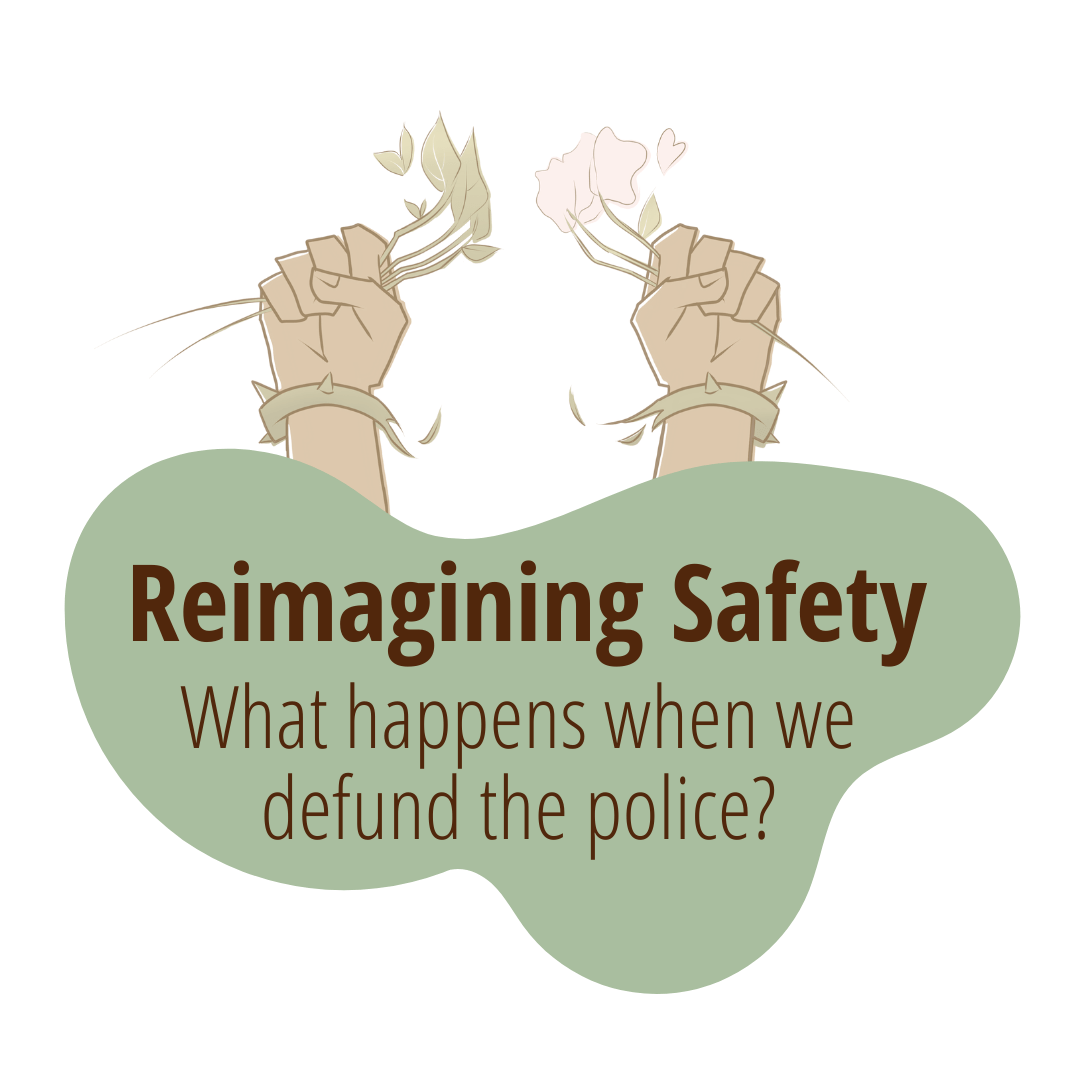
- This event has passed.
Reimagining Safety: What happens when we defund the police?
March 10, 2022 @ 6:00 pm - 8:30 pm

It’s hard to imagine a world without policing. In the context of our communities, Black and Indigenous organizers will share their wide array of experience in stepping up where police currently miss the mark, and share their imaginings of a safer future.
Defund the Police gained popularity in 2020 as a public demand across Turtle Island in the wake of the killing of George Floyd, but abolitionist organizers have been on the ground, working, for decades in communities that are too often targeted by police and the so-called justice system. And in that organizing we not only find the will to fight for something better—we also find hope.
Mariame Kaba reminds us that hope is a discipline.
So when we look at safer communities, we look to the work that’s already being done, as a starting point to imagine a future that relies on hope and community, rather than on punitive measures and policing. In this panel, we aim to facilitate a round-table discussion with exemplary leaders in our communities, not to speak on the barriers that currently exist, but on the measures we can take despite them, and alongside their abolition.
————
Our panelists include El Jones, Marlihan Lopez, Amy Edward, and Jessica Quijano, each of whom bring incredible wisdom and value to the discussion. It will be moderated by Akira de Carlos.
Jessica Quijano is a mother of two, and coordinator of the Iskweu project at the Native Women’s Shelter of Montreal that aims to eradicate the number of MMIWG2S. She is of Mexican and French descent. She has been part of the harm reduction movement for many years. She is also a spokesperson for the coalition to defund the police.
Marlihan Lopez is a Black feminist community organizer tackling issues surrounding anti-blackness, gender-based violence and its intersections. She coordinated the EDI (equity, diversity, inclusion) division for the Quebec Coalition of Rape Crisis Centres, where she did advocacy work and raises awareness on how gender, race, class and ability intersect in the context of sexual violence. She has also organized with movements such as Black Lives Matter around issues such as racial profiling and police brutality. She is currently co-Vice-President for la Federation des femmes du Québec and Program and Outreach Coordinator at the Simone de Beauvoir Institute. She is also cofounding member of Coalition to Defund the Police, based in Montreal.
El Jones is a spoken word poet, an educator, journalist, and a community activist living in African Nova Scotia. She was the fifth Poet Laureate of Halifax. In 2016, El was a recipient of the Burnley “Rocky” Jones human rights award for her community work and work in prison justice. She is a co-founder of the Black Power Hour, a live radio show with incarcerated people on CKDU that creates space for people inside to share their creative work and discuss contemporary social and political issues, and along with this work, she supports women in Nova Institution in writing and sharing their voices. El served as the 15th Nancy’s Chair of Women’s Studies at Mount Saint Vincent University for the 2017-2019 term. Her book of spoken word poetry, Live from the Afrikan Resistance! was published by Roseway Press in 2014. El writes a weekly column for the Halifax Examiner, and was an Atlantic Journalism Award winner in 2018. El would like to pay tribute to the many nameless and unrecognized women whose work makes it possible for her to be here today.
Amy Brant Edward is Kanyen’keha:ka (Mohawk), born and raised in Brantford, Ontario, and is a citizen of Six Nations of the Grand River. She is the Restorative Justice Coordinator at the First Peoples Justice Centre of Montreal. Her role is working on the development and organization of a Justice Circle program within Tio’tia:ke (Montreal). This will provide Indigenous peoples in Tio’tia:ke the opportunity to meaningfully engage with justice, to be respected during these processes and have their voices listened to.The centre values pathways of seeking justice that are focused more towards ways of healing and repairing relationships rather than enforcing punishment
